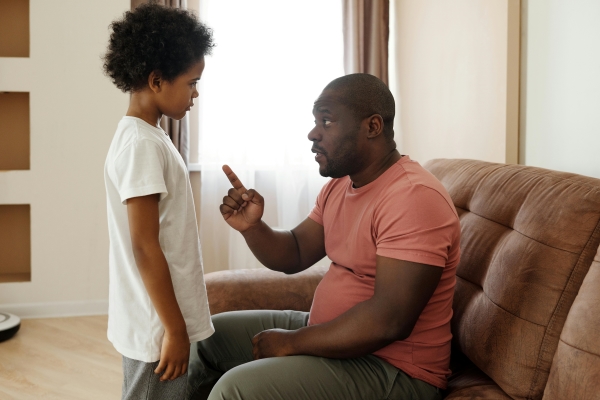Parents may lose control while disciplining their children, but physical punishment is not a solution. According to statistics from the Ministry of Health and Welfare, there were over 120,000 child abuse reports nationwide in 2023, a 20% increase compared to 2022, with more than half of the cases related to physical mistreatment. Experts urge parents to learn how to regulate their own emotions when faced with children's disruptive behavior, to avoid impulsive reactions that could harm the child.
Corporal Punishment Remains a Parenting Choice for Some Parents — Experts Warn of Long-term Impact
A survey by the Taiwan Fund for Children and Families showed that 21.1% of parents have physically punished their children within the past month, with over 80% believing that "physical punishment is an acceptable form of discipline" and 30% believing that "physical punishment does not harm the child." However, corporal punishment can affect a child's mental health, undermine trust between parent and child, and make children distance themselves from their parents, unwilling to share their thoughts. Even though parents understand these principles, emotions can still get out of control when facing children’s disobedience or resistance.
Little Jay's mother, under the pressure of long-term caregiving for family members and educating her child, couldn't resist hitting her child. She deeply regretted her actions afterward and realized that this approach not only failed to solve the problem but also made her child distrust her even more, causing their relationship to become increasingly estranged.
Four Calming Techniques to Help Parents Manage Emotions Without Resorting to Physical Punishment
Jen-Fang Lee, a supervisor at the Miaoli branch of the Taiwan Fund for Children and Families, pointed out that children's brains are not yet fully developed, making them less capable of emotional regulation. Therefore, parents must calm themselves first to avoid escalating conflicts. She shared four practical techniques to help parents avoid corporal punishment during emotionally charged moments. When having an argument with your child, taking a few deep breaths and avoiding any conversation can help parents regain composure and lower their voices. (Photo / Sourced from pexels)
When having an argument with your child, taking a few deep breaths and avoiding any conversation can help parents regain composure and lower their voices. (Photo / Sourced from pexels)
- Close Your Eyes and Breathe Deeply to Regain Rationality
When arguing with your child, the volume of both parties often increases gradually. At this point, take a pause, close your eyes, and take several deep breaths. This brief breathing exercise can help calm your inner emotions and reduce the intensity of your tone, preventing the argument from spiraling out of control. - Leave the Scene to Give Each Other Space
If the situation allows, parents can temporarily leave the scene to cool down but should return to their child as soon as possible to avoid the child feeling abandoned. If the child has a tantrum in public, parents can leave the scene with the child, as the new environment may help divert the child’s attention and stop the tantrum. - Seek Alternative Caregivers to Buy Yourself Time to Cool Down
If there are other family members present, let them intervene to handle the child’s emotions, giving yourself time to calm down. This can effectively prevent impulsive physical punishment caused by emotional outbursts. - Face the Emotions and Express Feelings Honestly
Parents can openly express their feelings to the child, such as, “I am very angry right now, but I don’t want to yell at you.” This honesty can help the child understand the parent's feelings and also teach the child how to face their own emotions.
A Calm Mindset Fosters Positive Parenting, and Social Support Helps Reduce Corporal Punishment
Jen-Fang Lee reminds parents that even if they calm down, the child’s emotions may not settle immediately, especially in public places, where parents may feel the gaze and pressure of others. Therefore, in addition to stabilizing their own emotions, parents also need a strong heart to ignore external judgments and focus on stabilizing their child’s emotions. Conversely, society should show respect and understanding for conflicts between parents and children. A kind look may provide parents with more support and reduce the likelihood of resorting to corporal punishment due to stress.
A child’s growth is full of challenges, and parents need to learn and grow when facing these challenges. Replacing anger and scolding with love and calmness can truly establish a healthy and solid parent-child relationship, allowing children to grow up in a warm and nurturing environment.







